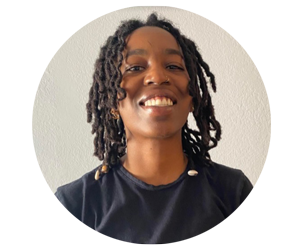American immigrants bring diversity to our culture via art, food, music, and ideas, further enriching our communities. By sharing their varied experiences with us, our immigrant associates educate us in unique ways and help us find solutions to longstanding problems. Immigration helps reduce one of the nation’s largest issues: the supply of labor. Simply put, more people in the country means more people in the workforce which greatly benefits the economy. More than 44 million people living in the U.S. have migrated here from other countries. Immigrants make up about 14% of the U.S. population, making them a very integral part of our society and workplaces. In fact, immigrants make up 17% of the American workforce.
Challenges in the Workforce – Employer Discrimination
Unfortunately, despite the potential benefits, immigrants do not always receive a warm welcome. Many immigrants face discrimination based on harmful biased attitudes about their backgrounds and immigration status. Even though most immigrants (77%) are legalized citizens, many immigrants (particularly Latinx and Muslim people) suffer lasting consequences of the “illegal” immigrant stereotype and suspicion. Many immigrants find it difficult to obtain safe, legal employment, as employers are often unwilling to sponsor non-citizens and still discriminate against non-natives who do not require sponsorship. When immigrants do find employment, they may be subjected to abuse by their employers. In addition to receiving marginally lower wages than American citizens, immigrants are often threatened with immigration enforcement by abusive employers if they do not conform to the employers’ demands. As a result, immigrants are subjected to harsh working conditions.
While federal and state laws do prohibit workplace discrimination against immigrants, those without access to legal resources are usually left unprotected. This is especially true for immigrants who fall within other marginalized social groups (poor, LGBTQA, etc.). Workplace Harassment Some immigrant employees may still experience harassment or unwelcome interactions from co-workers or direct managers including mockery of their accents and inappropriate political comments. For example, some people may not feel comfortable disclosing their immigration status to others. It is illegal for an employer to ask this during the interview process, but many immigrants report being asked at work. It is not appropriate to ask this unless the person mentions it to you first.
Overview of Employment Law
According to the Immigration and Nationality Act (INA), it is illegal to discriminate against current and potential immigrant employees regarding hiring, firing, recruitment, or referral. Employers are also not allowed to require U.S. citizenship in their hiring policy for any position unless required by law or government contracts. These laws also include discrimination against color, religious practices/garments, hairstyles, and language. Employers cannot implement English-only or English fluency policies unless it is required for specific job duties.
Welcoming Your Immigrant Staff and Co-Workers Employers
Employers can show their support by providing equal support services to all staff members. The same services available to full-time employees should be applied to contracted workers (cleaning staff, drivers, etc.). These roles are more likely to be filled by immigrants and other lower-class citizens who are rarely included in the company’s decisions. Include them in company events and employee assistance programs too. Associates Associates can help their fellow immigrant co-workers by being open-minded and providing a psychologically safe space. Immigrants may feel like the new kid in school–homesick in unfamiliar territory. Be intentional about including them in meetings and luncheons.
Conclusion
We all benefit from the presence of immigrant associates and play a part in welcoming them into our community!

By Kendra McFadden | Content Writer
Baltimore-native Kendra McFadden is a graduate of Morgan State University where she received a B.S. in Business Information Systems. She has written in various industries including finance and real estate before turning her eye to marketing and film. She is currently working as a content writer in the IFS Marketing department contributing to the DEI&B Culture Book Diversity Dive series.








